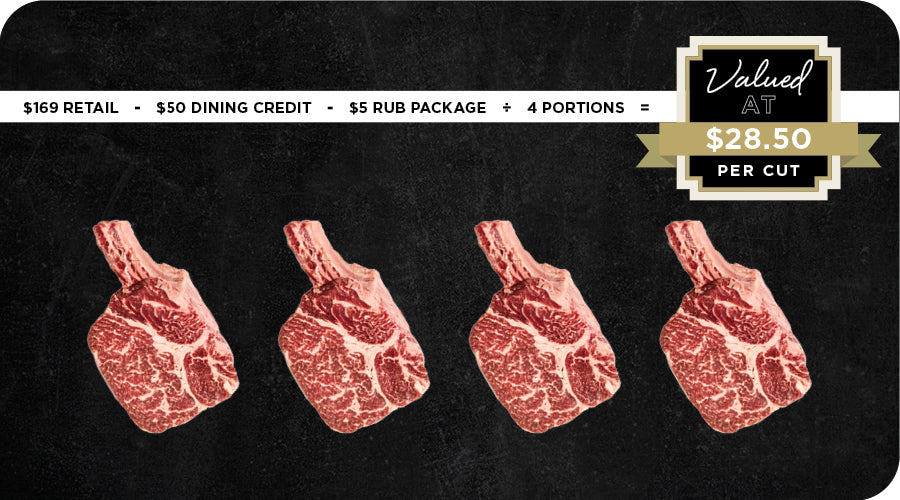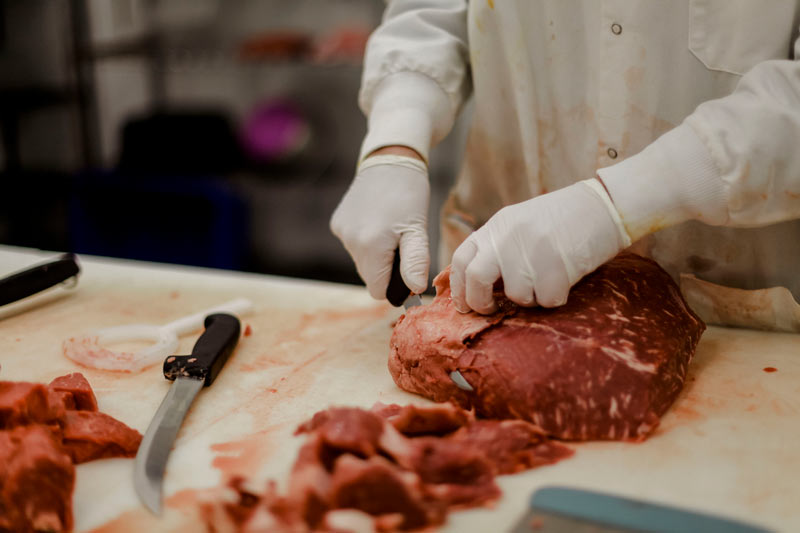Bagley Meat Market Edwardsville IL: Your Trusted Local Butcher for Quality Meats
Bagley Meat Market Edwardsville IL: Your Trusted Local Butcher for Quality Meats
Blog Article
Why Buying at a Regional Meat Market Guarantees Fresh, High-Quality Cuts
Buying at a neighborhood meat market uses unique advantages that frequently go unnoticed by consumers accustomed to larger retail chains. These markets offer direct access to fresh, top notch cuts, a result of minimized transport time from farm to counter. This not only enhances taste yet also supports local farmers, promoting community relationships and sustainable methods. Strenuous top quality control measures make sure that each acquisition fulfills high criteria of safety and security and quality. Yet, the implications of choosing local extend past prompt benefits, prompting a more detailed assessment of what this choice genuinely means for both customers and the regional economy.
Advantages of Regional Sourcing
In the world of food procurement, the benefits of regional sourcing stand out plainly. By acquiring meat from neighborhood markets, customers get straight access to items that are often fresher and extra tasty than those discovered in larger, industrial supermarkets. Local sourcing reduces the moment and distance food takes a trip from farm to table, which not just boosts taste however likewise protects dietary value.

Furthermore, local sourcing usually offers openness concerning the beginnings of the meat. Consumers can ask about the farming methods made use of, pet well-being standards, and whether the meat is grass-fed or organic. This details equips shoppers to make informed decisions lined up with their worths.
Quality Assurance Standards
Local meat markets often abide by extensive quality control requirements that make certain the items supplied meet high safety and security and freshness standards. These criteria normally include numerous phases of the meat production process, from sourcing to handling and storage.
First, neighborhood markets commonly develop rigorous vendor criteria, making sure that only trustworthy ranches and manufacturers are used - bagley meat market edwardsville il. This decreases the likelihood of contamination and promotes greater animal welfare standards. In addition, numerous regional meat markets execute routine assessments to confirm that the meat is refined under sanitary problems, additionally reducing wellness dangers
Temperature level control is an additional crucial facet of quality control. Regional meat markets regularly keep an eye on refrigeration systems to keep optimum storage temperature levels, ensuring that meat remains risk-free and fresh for intake. The execution of traceability systems enables markets to track the beginning of their items, providing transparency and accountability.
Finally, staff at neighborhood meat markets are frequently educated to recognize signs of perishing and understand appropriate handling strategies. This dedication to quality assurance not just raises the general requirement of the meat however also promotes consumer count on, making neighborhood meat markets a trustworthy resource for top notch cuts.
Sustaining Neighborhood Farmers
Supporting neighborhood farmers is crucial for promoting a lasting food system and boosting neighborhood strength. They straight contribute to the livelihoods of farmers in their area when customers select to go shopping at neighborhood meat markets. This not just supports the regional economic climate yet also reinforces the agricultural sector, ensuring that it continues to be dynamic and sensible.


Additionally, sustaining regional farmers cultivates a feeling of community and link between customers and producers. It motivates transparency in food sourcing and imparts trust fund, as customers can establish connections with the individuals that raise their food. This straight link eventually causes a more engaged and informed public, which is important for promoting for sustainable farming methods in the future.
Sustainable Practices
Sustainable methods in meat markets play an important duty in advertising environmental stewardship and ensuring pet welfare. Neighborhood meat markets often focus on sourcing their items from farms that execute honest and lasting farming techniques. These techniques consist of rotational grazing, which helps keep soil health and wellness and lowers carbon discharges, alongside lessening using antibiotics and hormones in animals.
Furthermore, neighborhood meat markets typically emphasize openness in their supply chains. Customers are offered with info regarding the beginning of their meat, allowing them to make informed choices that line up with their worths. By supporting local farmers that exercise lasting methods, customers contribute to the conservation of biodiversity and the decrease of transportation discharges connected with long-distance meat circulation.
Furthermore, lots of neighborhood meat markets engage in waste reduction methods, such as making use of every component of the pet and advertising off-cuts that could otherwise go unsold. By fostering an extra sustainable approach to meat consumption, these markets not just offer top notch products yet additionally add favorably to the setting and pet welfare. Basically, shopping at a local meat market aligns consumers with check over here a broader movement in the direction of moral and accountable food sourcing.
Individualized Customer Support
Shopping at a meat market frequently encompasses more than just the items offered; it is also concerning the experience and the relationships constructed in between consumers and team. Individualized client service is a hallmark of regional meat markets, setting them besides larger grocery chains. Well-informed team take the time to recognize individual consumer choices, making sure that each see is customized to particular demands.
Consumers profit from experienced guidance on cuts, food preparation techniques, and prep work ideas, fostering a sense of depend on and commitment. This customized interaction enables consumers to ask inquiries and seek suggestions, leading to notified getting choices. Personnel usually bear in mind routine consumers and their preferences, creating an inviting ambience that cultivates community connections.
In addition, customized service includes special demands, such as customized cuts or particular prep work techniques, which bigger sellers may not suit. This level of attention reinforces the commitment of regional meat markets to quality and client fulfillment.
Essentially, customized customer care not only enhances the buying experience yet also makes sure that clients entrust the very best items matched to their cooking needs, making every see a satisfying one.
Final Thought
Supporting regional farmers promotes neighborhood relationships and reinforces the regional economic climate, while sustainable techniques add to environmental stewardship. In addition, customized client solution enhances the buying experience, making neighborhood meat markets a favored selection for customers seeking both quality and moral factors to consider in their food sourcing.
The effects of choosing regional extend past prompt advantages, triggering a more detailed examination of what this selection really indicates for both consumers and the regional economic climate.
Supporting regional meat markets also adds to the neighborhood economic climate. Regional meat markets regularly keep track of refrigeration systems to preserve optimal storage temperatures, making sure that meat remains fresh and secure Learn More for consumption.Regional farmers are typically a lot more attuned to the specific demands of their areas, growing crops and increasing livestock that straighten with neighborhood preferences and choices. Supporting neighborhood farmers promotes neighborhood relationships and reinforces the regional economic situation, while sustainable methods add to environmental stewardship.
Report this page